
Contents
To Lauryann
Thank you for making me write this book.


The date was August 31, 1984. It was Chinas midnight and Americas morning. I was about to drop out of the sky and land in Chicago. What made me scared and nervous was that I didnt speak English and had no money. The five hundred dollars I had folded in my wallet was borrowed. But I could not let myself be frightened. I was twenty-seven years old and life had ended for me in China. I was Madame Maos trash,  , which meant that I wasnt worth spit. For eight years, I had worked menial jobs at the Shanghai Film Studio. I was considered a cooked seedno chance to sprout.
, which meant that I wasnt worth spit. For eight years, I had worked menial jobs at the Shanghai Film Studio. I was considered a cooked seedno chance to sprout.
Sitting in the airplane crossing the Pacific Ocean, I felt like I was dreaming with my eyes wide open. I tried to imagine the life ahead of me, but my mind went the other way. I saw myself as a child attending kindergarten, where everyone called me Stink. My mother was ill with tuberculosis and never got the chance to wash the blanket I brought home every month.
Its just a matter of time, Mother said. She was thirty-one years old and she expected herself to die. Watching her labored breathing and thinking about how my grandfather died of tuberculosis at age fifty-five and my grandmother at forty-nine, I didnt have the heart to keep asking my mother to wash my blanket.
I brought the unwashed blanket back to the kindergarten. My teacher rolled her eyes. And look at that pair of animal claws! She turned away in disgust. I was embarrassed. I wished that I could tell her that I had tried to do it myself, but the scissor was too rusty to cut. I couldnt get help from my father either. He was rarely home. He spent his days knocking on peoples doors asking to borrow money, wearing tattered clothes patched at the knees and elbows. People avoided him the moment they saw him approach.
In the hot and humid summer, pimples began to bloom on my forehead. Infected, they swelled and oozed pus. Flies landed on my head. I tried not to scratch the pimples, but the itch was unbearable. To lessen the chance of passing germs to others, I was restricted from play and had to stay away from the crowd during lessons, especially during story time.
I begged my mother to take me to a doctor. One pimple was now the size of a grape. My mother said that she had no money. She had four children, and I was the only one who was not sick.
Your father has exhausted every relative, Mother said. No one will help us anymore. Every month I witnessed my parents struggling against their late debt payments to relatives, friends, and colleagues. We didnt own a towel. For years, the six of us had been sharing one dirty rag. Pinkeye spread to every member of our family. In the end, my mother told me that the zits would not kill me.
We were considered middle-class in Shanghai. I wished that my parents were proletarians like our neighbors, so that we would qualify for free medical care. Unfortunately, both of my parents were teachers, and thus regarded as bourgeois sympathizers. To be reformed was their fate. When the Cultural Revolution erupted in 1965, my mother was sent to a factory. Her job was to pick rubber boots from molds on an assembling line. To get to work, she had to transfer three buses every morning, which took hours. My fathers work was farther. He labored in a printing shop.
One day, I was sent home with a notice from my kindergarten. The inspector from the public health bureau was concerned about the spread of my infection. My parents were ordered to take action, or the government would do it for them. My mother decided not to respond.
A blue tricycle with red stars painted on each side came for me on a Monday afternoon. I was taken to a hospital where a surgeon removed my infected pimples. The surgery left an inch-long scar on the left side of my forehead.
My mother was horrified when she opened the bandages. She protested that she hadnt given consent for the surgery. For heavens sake, you have ruined my daughters appearance!
Mother was told that a girls looks carried no meaning in a proletarian society. You ought to be grateful that the surgery cost you nothing, thanks to the Communist Party and the socialist system!
When I graduated to elementary school, I was still friendless. My clothes were covered with patches and my shoes were falling apart. Bullies competed at hitting me over the head with umbrellas and abacuses and seemed to enjoy the sound of beads hitting my skull. The more I ducked, the more excitement I generated. I never told my parents about what happened to me at school, because I believed they would only make the situation worse.
I am going to leave you on the street, my kindergarten teacher threatened. Its ten P.M.! Your mother is taking advantage of me. I have my own three young children to attend! I was scared. Finally, my mother showed up. She was so thin she looked like a ghost under the dim streetlight.
On the day my mother got paid, I took my siblings to wait at the number 24 bus stop on Shanxi Road. We had been hungry for days. I licked the rice jar clean with my tongue. I also picked apple cores and sucked on popsicle sticks from public trash bins. The thought of Mother buying bread helped us endure our stomachaches. We cheered the moment our mother stepped off the bus. One time she arrived with bad newsher wallet had been stolen on the bus.
Waiting for my mother in the hospital was another thing I often did. My mother wanted so desperately to qualify for a permission-to-rest slip that she was almost happy when she felt dizzy, for she knew that her condition might earn her the slip. I saw Mother throw away medicine to ensure that her condition would not improve.
My mother was once a beauty. Though she was never interested in her own good looks, she was praised for having a pair of bright double-lid Indian eyes and a slender figure. She loved ancient Chinese poetry and singing, although with her poor lungs she could barely hold high notes.
Another strong memory is of waiting for my mother in a pawnshop. It had a huge black door and a high counter. My mother stood on her toes and reached up toward the counter with her bag. The night before, she had mended the clothes and sewed on buttons. She pawned her winter clothes in the summer and her summer clothes in winter. In the end, she ran out of things to pawn. I will never forget the disappointed expression on her face when her items were rejected.
Once I saw Mothers eyes light up when a relative bought us childrens jackets as gifts for the New Year. I anticipated wearing the new jacket to school the next day. But the clothes disappeared. My mother never told us where the jackets had gone. I knew she had taken them to the pawnshop. She must have convinced herself that she would get the jackets back before the expiration day, but she never had the money.
I remembered the traces of blood on the snow where my mother walked. Her frostbite wounds cracked open and the backs of her feet bled. Her shoes were made of plastic that cut like a knife in winter. She couldnt afford a pair of cotton shoes or socks.
I followed Mother and walked in her bloody footprints. I was amazed that she never complained about the pain. Occasionally, her face would screw up, and she would let out a muted cry.
In the days before my departure for America, I went to a hair salon on Shanxi Road. It was called the Shanghai White Jasmine. I was asked the nature of my occasion.
Next page
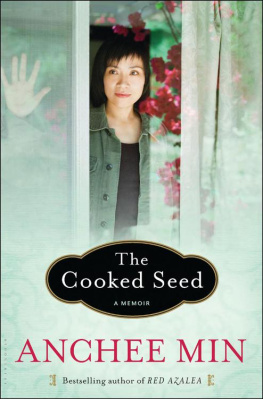
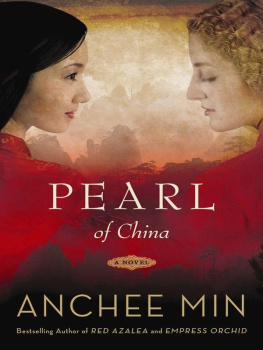
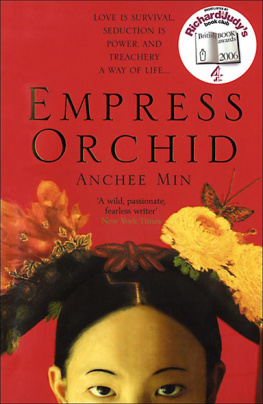

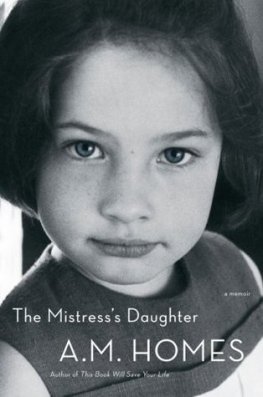
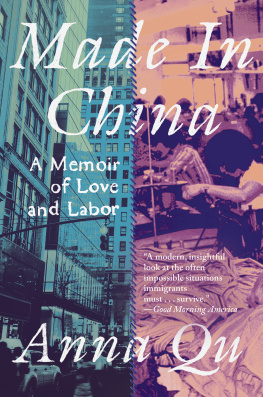
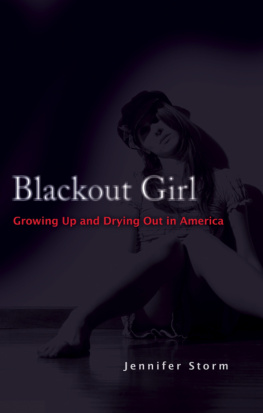
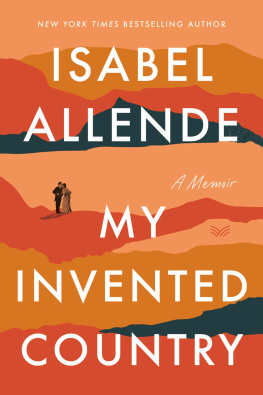
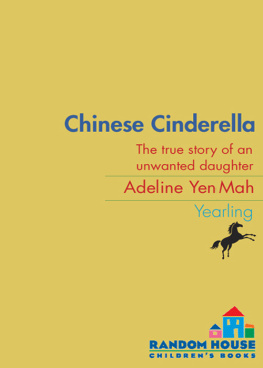



 , which meant that I wasnt worth spit. For eight years, I had worked menial jobs at the Shanghai Film Studio. I was considered a cooked seedno chance to sprout.
, which meant that I wasnt worth spit. For eight years, I had worked menial jobs at the Shanghai Film Studio. I was considered a cooked seedno chance to sprout.